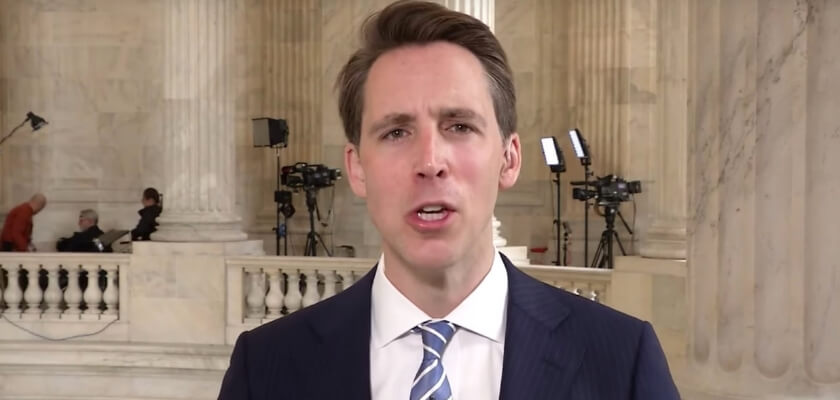US Senator Josh Hawley, a constitutional lawyer and Republican from Missouri, is among those who are not putting too much faith in Facebook CEO Mark Zuckerberg’s promised u-turn in favor of affording his users more privacy – that is, more than the ostensibly precious little these billions of people – in the US and around the world – enjoy today.
Zuckerberg’s platform was first revealed earlier in the year and then reiterated recently during the social media giant’s F8 developer conference. Hawley’s reaction is interesting as it shows that he understand the issues with Facebook – more-so than most politicians.
In his letter dated May 13 – PDF – Hawley urges Zuckerberg not to skip on any details of his announced plan – notably what data his company would continue to harvest from users even after the planned “privacy pivot.”
Here are some particularly important and pressing questions Hawley asks Zuckerberg:
“What metadata will Facebook maintain related to user messaging interactions, and for how long? How will it use such data? Will such data supplement other data in user profiles to enhance ad targeting?
Will Facebook make any attempt to determine, by comparing such metadata with other data sources, anything about the content of users’ conversations, such as which articles Facebook users have likely shared with each other via encrypted messenger?
Will it commit to establishing a firewall between data related to user messaging, including metadata related to links shared through the platform, and the rest of its data infrastructure?
If not, will Facebook cooperate with inquiries by Congress and the FTC regarding whether its public representations about this messaging platform are misinforming consumers?”
What metadata will Facebook collect and retain relating to commercial interactions through its messaging platform and payments more generally?
How does Facebook define “non-public personal financial information, and does such information include the names of participants in payment transactions? What metadata categories are excluded from this definition?
How will data and metadata relating to commercial and other payment interactions – including data relating to the origin and conclusion of encrypted private chats with advertisers or Facebook contacts as well as data on payments occurring within such chats – be used by Facebook?
Will such data inform personalization algorithms?
Will encryption be available for private messages between more than two participants?
Will Facebook commit to apply the same data.encryption.protocols used in private messenger to Facebook groups?
Will it make any privacy–protective distinctions with respect to its own data collection for user profiling and advertisement between data shared in open groups and data shared in closed and secret groups?
Will it allow advertisement targeted to groups, and will the advertising allowed differ between different categories of groups?
Will data compiled through content shared in groups — especially closed or secret groups – be added to the user profiles compiled to target ads to users throughout the platform?
Hawley voices the concern of many critics of Zuckerberg’s manifesto – that came about under apparent duress of media and regulators’ onslaught against the giant’s practices – as likely being merely lip service aimed to mitigate his company’s current public relations woes.
And according to Hawley, it is likely to amount to nothing much more than an attempt to “subvert the privacy revolution that threatens Zuckerberg’s business model and claims an empty public relations victory.”
Hawley also wonders what the declared goals from Zuckerberg’s F8 keynote promising an encrypted communications system would, in reality, mean for his empire’s core business model.
And it’s one traditionally invasive of, and maintaining its presence in Facebook users’ private data for the sake of monetizing it.
But if Zuckerberg’s address had been short on detail, he now has a chance to lay out and explain his plan – if, that is, he decides to respond to Hawley’s letter. It, among other issues, raises concerns that users who might put their faith in the Facebook CEO’s promise and decide to transition from encrypted to private messing apps – could then regret it.
“If you succeed in capturing the encrypted messenger market, I fear that the net effect would be erosion rather than expansion of user privacy,” the senator writes, voicing his concern that data collection would simply shift from capturing data contained in private messages – to metadata surrounding users’ overall interactions on the platform.
Another of Hawley’s concerns is the health of the news publishing market, now increasingly at the mercy of Facebook’s algorithms.
Now, it would be good if he did the same line of questioning about freedom of speech on the platform.













